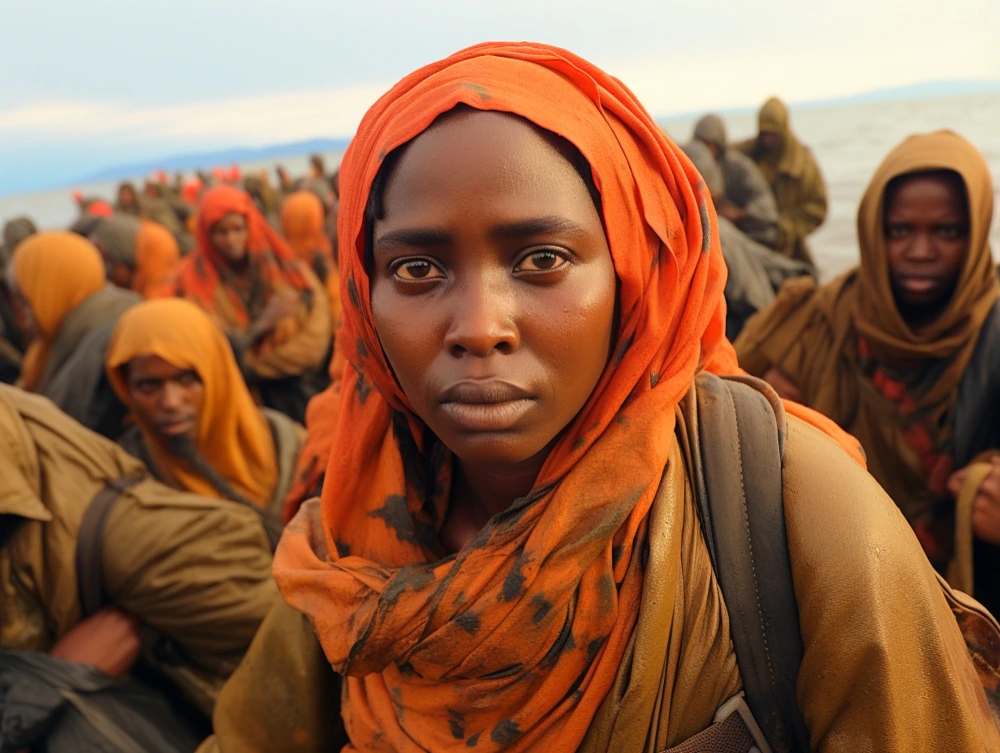Each year, millions of people are trafficked within their countries and across borders. Human trafficking is not just a crime; it’s a multi-billion-dollar global enterprise preying on the vulnerable. The United Nations estimates this illicit trade generates $150 billion annually, with women and girls comprising 71% of victims. Nowhere is this more evident than in Nigeria, where poverty, gender inequality, and systemic failures create perfect hunting grounds for traffickers.
As the world marks the International Day Against Trafficking in Persons, the United Nations Office on Drugs and Crime (UNODC) reminds us that women and girls continue to make up most detected victims globally, especially for sexual exploitation. Here, survivors’ stories reveal a chilling pattern: traffickers prey on women and girls.
Human trafficking as a gateway to exploitation
“I was raped when I was very young,” one survivor begins. “I was constantly molested by my uncle and his friends. I eventually ran away from home to escape. That was when I met a woman who promised to help me with a job. That was the beginning of my journey into sex trafficking.”
Her story is echoed by many others. From incest and molestation to partner abuse, violence is often the first act in a long chain of exploitation. Some are lured by strangers. Others, by relatives. Another survivor recounted: “My uncle sold me to a madam in Libya. She said I owed $5,000 for the journey. For two years, I was trapped in a brothel.” “Some girls were even trafficked by their boyfriends,” she adds. “They promised them love and a better life, only to hand them over to pimps abroad.”
Trauma is both the door and the lock. Girls already silenced by rape and rejection are easier to deceive and control. “They don’t just traffic anybody,” she says. “They target those who are already broken, who won’t speak up.”
‘Used and dumped’ the shame, silence and mental abuse
The abuse doesn’t stop at trafficking. Survivors face years of rape, unpaid labour, hunger, and mental torture in foreign lands. Many return only to be shamed into silence. “They find themselves used and dumped,” says NACTAL Lagos coordinator, Morenike Omaiboje “And when they speak up, society blames them.”
Even family isn’t always a safe space. “I had just lost my mum. My aunt was maltreating me. A neighbour said she’d help me get work in Italy. I didn’t even have a passport—they arranged it all. But when I got there, I realised I’d been sold.”
Survivors often suppress the trauma for years. “I was raped, beaten, made to sleep with multiple men a day. But when I returned to Nigeria, I couldn’t even tell anyone. I felt so much shame. It took years of therapy to even say it out loud.”
Calling for survivor-led solutions and state accountability
Trafficking is not random. From local recruiters to immigration officers, entire networks profit from the movement of women and girls.” Even when they escape, traffickers still find them and threaten them or their families. The fight against human trafficking as an organised crime demands robust, survivor-centred policies and programs,”
The solution must start from the roots including poverty, gender inequality, and violence. “We need safe spaces and trauma-informed services,” says the survivor. “Don’t just rescue us and leave us. We need long-term care. We need to heal.”
She also calls for genuine inclusion in policymaking: “Put survivors at the centre. We know where it hurts. We know how they operate. Let us lead the fight.”
As the world commemorates this day, Nigeria must go beyond awareness campaigns. Survivors are not statistics but voices demanding justice, safety, and systems that protect, not punish. Until gender-based violence is tackled as the foundation of trafficking, the cycle will continue silently, but powerfully.











